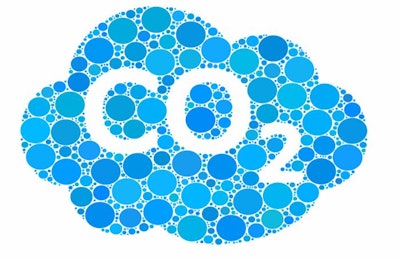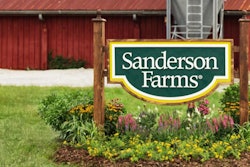
New Zealand’s top poultry company, Tegel Foods, says shortages of some of its products are in prospect.
According to Stuff, the firm issued this warning as it faces reduced supplies of carbon dioxide (CO2). The gas is used to prolong the shelf life of chicken meat in New Zealand. Also likely to be affected are other food products — including cheese, preserved meats and ready meals — as well as carbonated beverages.
In March of this year, the nation’s carbon dioxide supply was reduced when an oil refinery ceased production. This cut the supply of the gas — a by-product of refining — that was filtered and sold to food and drink businesses. Among its uses is in modified atmosphere packing of chicken meat and ready meals.
However, the situation has become acute following a recent announcement of a temporary closure of the country’s only other source of carbon dioxide. It is associated with a gas field. During July and the first half of August, the plant is scheduled to be closed for essential maintenance.
Importance of achieving sustainable CO2 supply
Issues over the supply of carbon dioxide are not unique to New Zealand.
Earlier this year, agreement was reached in the United Kingdom (U.K.) to ensure sustainable supplies of the gas for food production. Under the agreement, operations were set to continue at a plant in Billingham providing 60% of the nation’s requirements.
Industry body, the British Poultry Council welcomed the agreement in February of 2022. In the U.K. poultry industry, carbon dioxide is used not only for packaging and refrigeration of chicken products, but also for stunning birds prior to slaughter. Thus supplies were crucial for both food security and animal welfare.
At the time, the council said that the government-brokered agreement will enable the Billingham plant to operate over a period of high energy prices and food inflation.
The prospect of an imminent carbon dioxide shortage in the U.K. had arisen in September of 2021, when two of the country’s largest fertilizer plants were earmarked for closure. As natural gas prices began to jump up sharply, fertilizer production became uneconomic. At the same time, the closures threatened supplies of carbon dioxide, a by-product of the process.
Three years previously in 2018, the U.K. poultry industry was also facing shortages of carbon dioxide.
More on Tegel Foods
Founded in 1961, Tegel Foods now has 2,300 employees across New Zealand, according to the firm’s own web site.
With annual slaughterings of 58 million birds, Tegel Foods ranks fourth in terms of poultry meat production in Oceania, according to WATTPoultry.com’s Top Poultry Companies database for the region.
Tegel Foods is New Zealand's largest poultry producer with 50% market share for chicken, and 90% for turkey. Strong exports also have driven recent growth.
A fully integrated poultry business, the company has breeder flocks, hatching, feed milling, slaughter, processing, further processing, and cooking operations — all within New Zealand.
Tegel also offer products for retail, food service and fast-food channels in the Pacific Islands, Australia, Asia, and the Middle East.
In August of last year, Tegel warned that chicken prices in New Zealand would soon have to rise 10% to cover increasing costs of production.

















